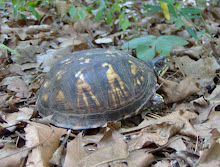I'll finish my review of Pleasurable Kingdom in my next post (with a more modern plot twist). Meanwhile, here's a plot twist to the story of animals and pleasure and science and natural history. Letters From Alabama was originally published in 1859. Yes, that's the same year as Darwin's Origin of Species, and quite some time after Descartes wrote his crap.
Food for thought on a day when you've probably already eaten too much.
Philip Henry Gosse was a young naturalist from England when he went to Alabama to teach school. He left after eight months, disgusted with slavery. The following is from p. 149 of the 1983 reprint:
"An eye accustomed to only the small and generally inconspicuous butterflies of our own country, the Pontiae, the Vanessae, and Hipparchiae, can hardly picture to itself the gaiety of the air which swarms with large and brilliant-hued Swallowtails, and other patrician tribes, some of which, in the extent and volume of their wings, may be compared to large bats. These occur, too, not by solitary and straggling individuals: in glancing over a blossomed field or prairie-knoll, we may see hundreds, including, perhaps, more than a dozen species, besides moths, flies, and other insects.
When contemplating such a scene thus thronged with life, I have been pleased to think of the very vast amount of happines that is aggregated there. I take it as an undoubted fact, that among the inferior creatures, except when suffering actual pain, life is enjoyment; the mere exercise of the bodily organs, and the gratification of the bodily appetites, is the highest pleasure of which they are capable: for as Spenser says--
'What more of happiness can fall to creature
Than to enjoy delight with liberty?'
Fate of the Butterfly
To look then on the multitudes of beings assembled in so circumscribed a spot, all pursuing pleasure, and all doubtless attaining their end, each one with an individual perception and consciousness of enjoyment, --what a grand idea does it give of the tender mercy of God, as a God of providence!
Let us extend the idea:-- there are about one hundred thousand species of insects known*; let your mind try to guess at the number of individuals of each species in the whole earth, (perhaps if you count the clouds of musquitos and gnats that issue from a single marsh, in a single night, it may assist you in the conjecture,) think of the other, less populous orders of animals, fishes, mollusks, testacea, animacules, &c., &c., reduce them to individuals, and you may have some distant approximation to one idea of Him, who "openeth His hand and satisfieth the desire of every living thing."EVERY LIVING THING! I have often thought that no one can appreciate the grandeur, the sublimity, of this sentiment of the Psalmist, like the devout naturalist."
*There are now over one million insect species known.








